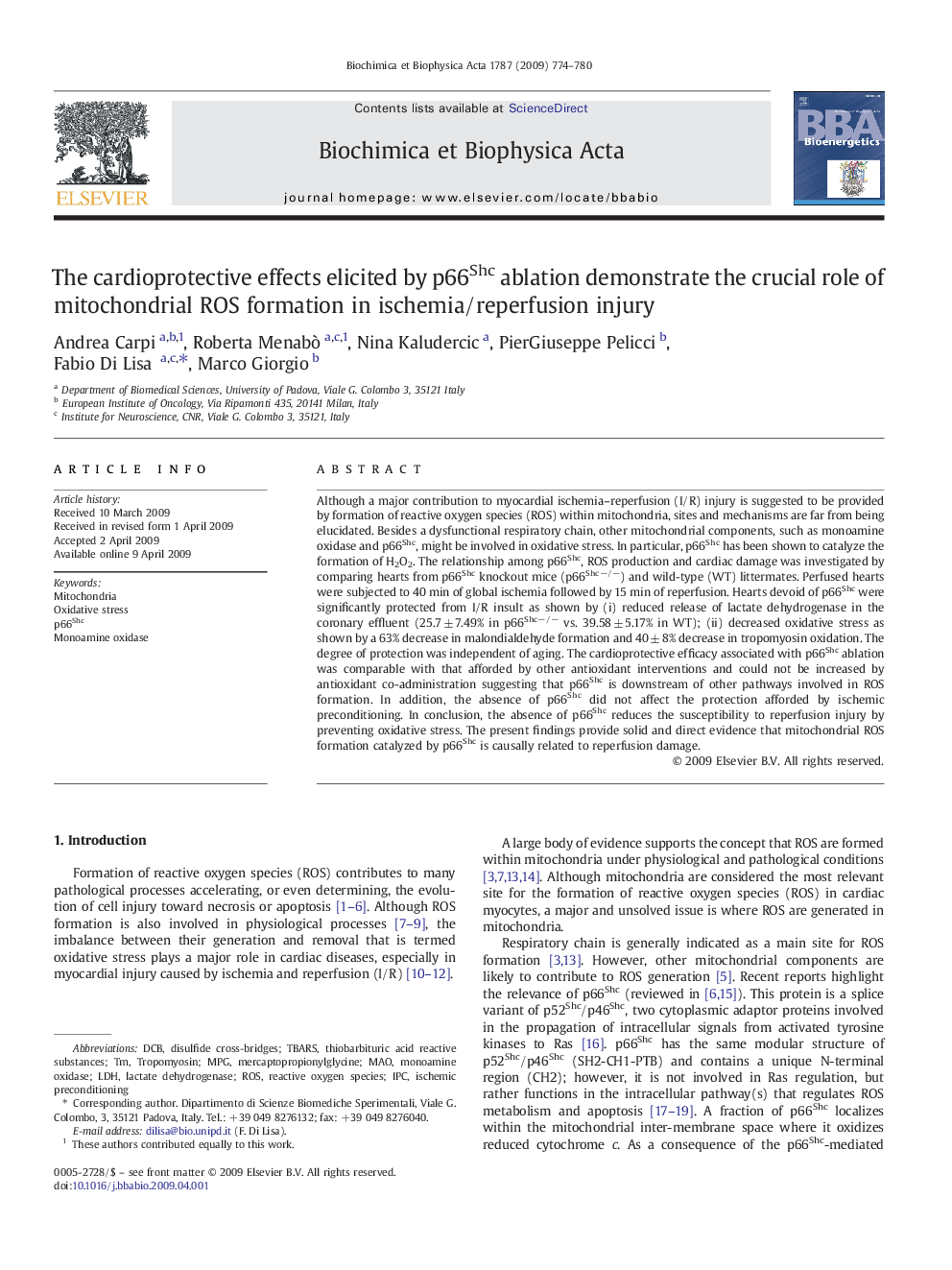| کد مقاله | کد نشریه | سال انتشار | مقاله انگلیسی | نسخه تمام متن |
|---|---|---|---|---|
| 1943149 | 1052650 | 2009 | 7 صفحه PDF | دانلود رایگان |

Although a major contribution to myocardial ischemia–reperfusion (I/R) injury is suggested to be provided by formation of reactive oxygen species (ROS) within mitochondria, sites and mechanisms are far from being elucidated. Besides a dysfunctional respiratory chain, other mitochondrial components, such as monoamine oxidase and p66Shc, might be involved in oxidative stress. In particular, p66Shc has been shown to catalyze the formation of H2O2.The relationship among p66Shc, ROS production and cardiac damage was investigated by comparing hearts from p66Shc knockout mice (p66Shc−/−) and wild-type (WT) littermates. Perfused hearts were subjected to 40 min of global ischemia followed by 15 min of reperfusion. Hearts devoid of p66Shc were significantly protected from I/R insult as shown by (i) reduced release of lactate dehydrogenase in the coronary effluent (25.7 ± 7.49% in p66Shc−/− vs. 39.58 ± 5.17% in WT); (ii) decreased oxidative stress as shown by a 63% decrease in malondialdehyde formation and 40 ± 8% decrease in tropomyosin oxidation. The degree of protection was independent of aging.The cardioprotective efficacy associated with p66Shc ablation was comparable with that afforded by other antioxidant interventions and could not be increased by antioxidant co-administration suggesting that p66Shc is downstream of other pathways involved in ROS formation. In addition, the absence of p66Shc did not affect the protection afforded by ischemic preconditioning.In conclusion, the absence of p66Shc reduces the susceptibility to reperfusion injury by preventing oxidative stress. The present findings provide solid and direct evidence that mitochondrial ROS formation catalyzed by p66Shc is causally related to reperfusion damage.
Journal: Biochimica et Biophysica Acta (BBA) - Bioenergetics - Volume 1787, Issue 7, July 2009, Pages 774–780